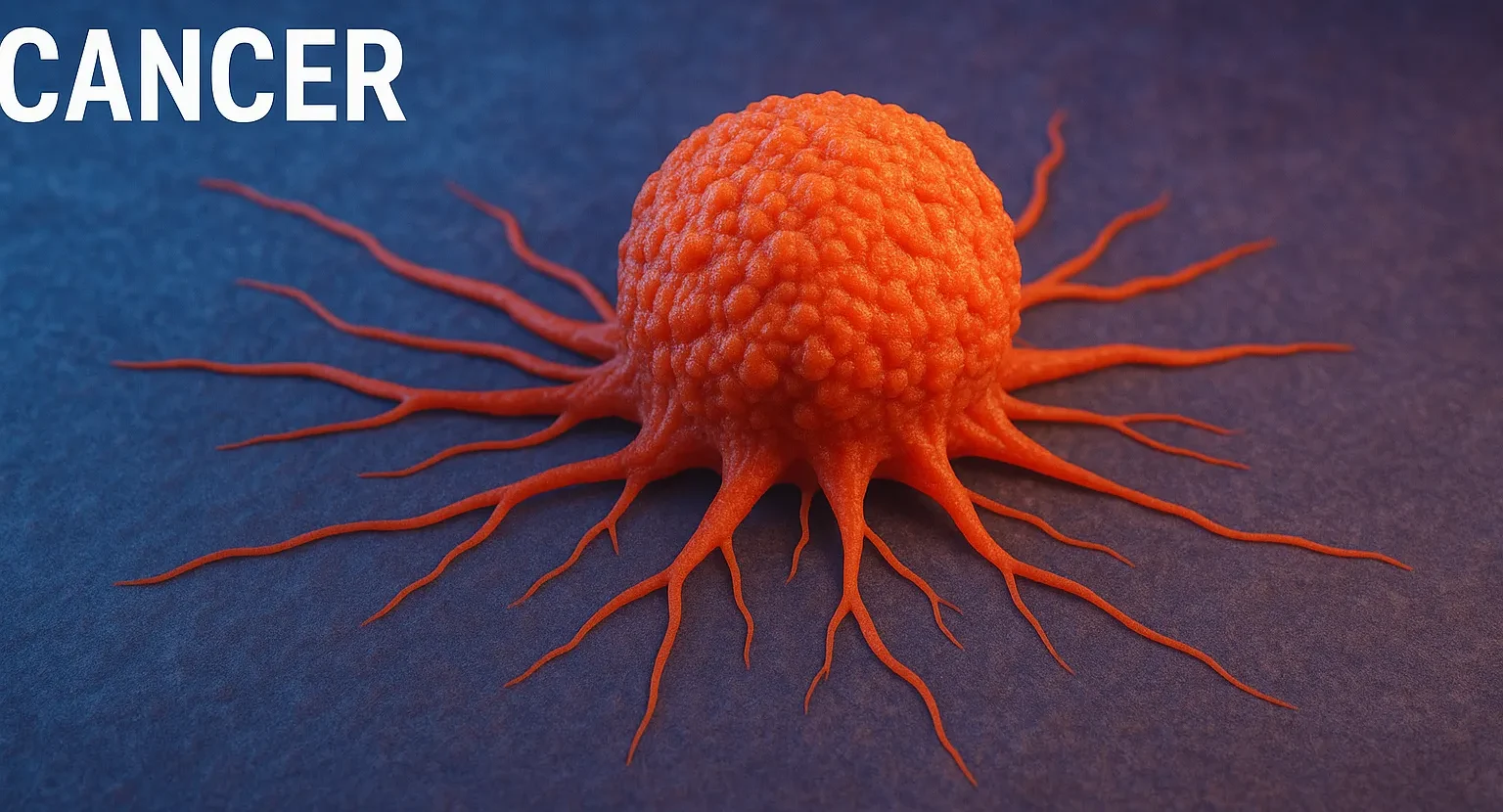Cancer is a group of diseases marked by uncontrolled cell growth, potentially spreading to other parts of the body and affecting vital organ function.
Definition:
- It refers to the uncontrolled growth and division of body cells, leading to the formation of abnormal tissues known as neoplasms or tumors.
- Neoplasm: A mass of tissue that develops abnormally when cells do not undergo timely apoptosis (cell death) or proliferate excessively.
Advertisements
Conditions of Cancer
- Disorganized Growth: Cells do not follow the normal structure and function.
- Uncontrolled Cell Division: Continuous proliferation without regulatory signals.
- Tissue Invasion: Tumor cells invade adjacent tissues.
- Lack of Apoptosis: Cells do not undergo programmed cell death, allowing accumulation.
Causes of Cancer
-
Genetic Factors:
- Inherited mutations and genetic predispositions.
-
Physical and Chemical Agents:
-
Hormones:
- Imbalances can promote certain cancers, such as breast and prostate cancer.
-
Infections:
-
Radiation:
- Ionizing Radiation: X-rays, gamma rays.
- Non-Ionizing Radiation: Ultraviolet (UV) light from the sun.
-
Rare Causes:
- Organ Transplantation: Immunosuppression increases cancer risk.
- Trauma: Chronic injuries may lead to cancer in rare cases.
Advertisements
Types of Cancer
-
Carcinoma:
-
Sarcoma:
- Arises from connective or supportive tissues.
- Affects muscles, fat, bone, cartilage, or blood vessels.
-
Melanoma:
- Develops in pigment-producing skin cells.
- Highly aggressive and prone to spreading.
-
Lymphoma:
- Affects lymphocytes (a type of white blood cell).
- Includes Hodgkin and non-Hodgkin lymphoma.
-
Leukemia:
- Cancer of the blood and bone marrow.
- Involves the overproduction of abnormal white blood cells.
Treatment of Cancer
-
Chemotherapy:
- Uses drugs to kill or inhibit the growth of cancers cells.
-
Radiation Therapy:
- Utilizes high-energy radiation to destroy cancers cells.
-
Surgery:
- Physically removes tumors from the body.
-
Hormone Therapy:
- Blocks or removes hormones that fuel certain cancers.
-
Biological Response Modifiers:
- Enhance the immune system’s ability to fight cancer.
-
Immunotherapy:
- Uses the body’s immune system to target and destroy cancer cells.
-
Bone Marrow Transplant:
- Replaces damaged or diseased bone marrow with healthy marrow.
Advertisements

